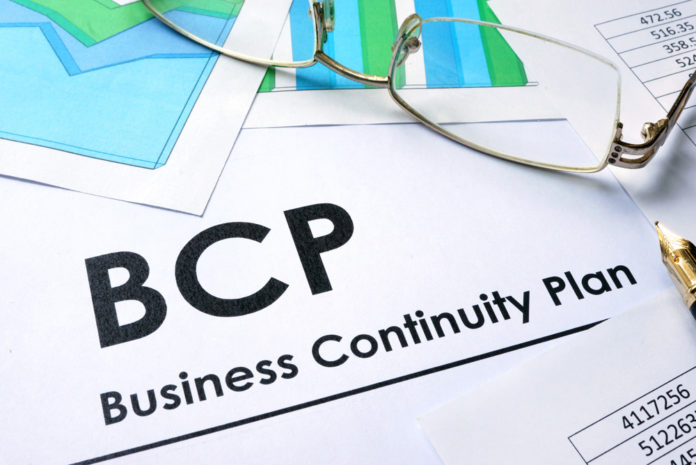
Business continuity planning is a process that outlines how a business should continue operating under unplanned service disruption circumstances. The process refers to a document which is written on a strategy that should be implemented upon one such service disruption. A business continuity plan (BCP) is more effective and more comprehensive than a disaster recovery plan as it details contingencies for business processes, human resources, assets, and business partners or in other words, it details every aspect of the business that might be affected by such service disruption.
One such business continuity plan involves a lot of checklists. These checklists include supplies and equipment, data backups, backup locations, and more. This document also involves emergency contacts, key personal, backup site providers, and any strategies on how the business should maintain operations on both short-term and long-term disruptions. A business continuity plan has a disaster recovery plan as an integral component. While a disaster recovery plan is a plan on its own, it can still be used to guarantee the safety of computer systems running’s.
A disaster recovery plan focuses on strategies that directly involve the companies IT infrastructures such as networks, servers, mobile devices, and personal computers. It is a plan that prioritizes how to reestablish office productivity in case of an emergency.
There are three primary aspects that a business continuity plan focuses on apps and processes, and those are:

Table of Contents
· High Availability
This refers to a strategy that ensures a business has access to applications and processes regardless of local failures. These failures could directly impact your IT hardware or software, they could be physical failures in your offices or facility, or it could be a business process.
· Continues Operations
According to CIO Advise, Continues Operations makes sure that your business has the ability to keep things running regardless of disruptions. It also safeguards the ability to maintain operations during planned outages, which could be scheduled backups, planned maintenance, or more.
· Disaster Recovery
Data is very important and that is what disaster recovery focuses on. Namely, disaster recovery establishes a way for you to recover your data center at a different site if your primary data center site is rendered inoperable.
Why Do You Need a Business Continuity Plan?

A BCP is very important because it allows smooth operations during outages. It also completely synchs business processes, IT infrastructure, and applications. IT infrastructure failures, alone, can cost a business up to $100,000 in costs per HOUR. The failing of critical applications has even cost businesses up to $1 million in total.
With the possibility of so many threats besieging your business, one way to make sure that everything runs smoothly even during such disasters is to create a business continuity plan. A BCP will develop strategies and create reliable infrastructure so that your business processes, IT infrastructure and applications can keep on running.
Furthermore, with the ever-growing importance of data, having the ability to not lose valuable data and information can be the difference-maker in businesses keeping their doors open to the public.
Acquire the business and computer skills you need for your business continuity plan by signing up at TrainingConnection.







